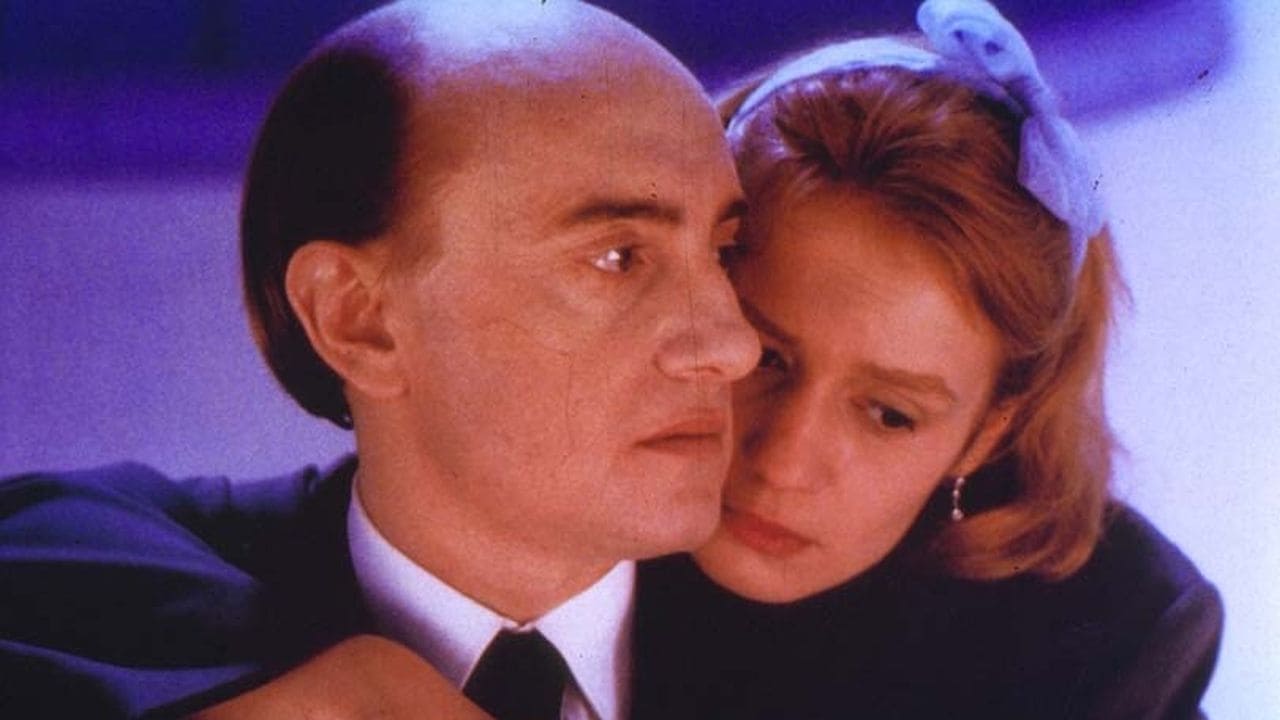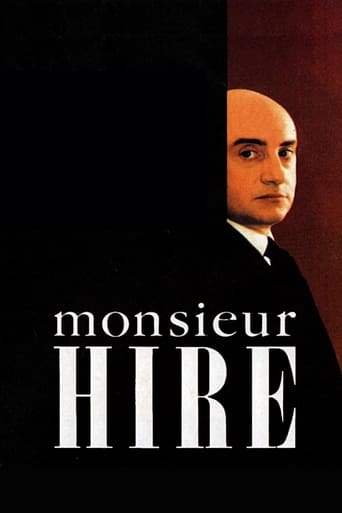

This subdued and elegant French psychological thriller is made with clockwork precision and for quite a while it looks like it could be a terrific whodunit as well as a terrific character study (it is based on a Georges Simenon book, after all), but it lets the cat out of the bag a little too early. With just some minor re-structuring (revealing the whole truth to the audience at the end and not the middle), the final scene would have had a stronger impact. Still, you cannot deny the perfection of this film's casting: both Michel Blanc and Sandrine Bonnaire (at her most beautiful) are ideal for their roles. And that POV shot during "the fall" at the end is haunting. **1/2 out of 4.
... View MoreEight César nominations including best Actor (Michel Blanc), Best Actress (Sandrine Bonnaire), Best Director (Patrice Leconte), and Best Film; a win for Best Sound, and a Golden Palm nomination at Cannes. Enough to convince anyone that this is a film worth seeing, even if it did not include Bonnaire.Leconte, who has given us films like Intimate Strangers and My Best Friend, never disappoints. His film is a thriller about a man who watches his neighbor undress through her open window, and becomes a suspect when a young girl is found murdered.A cat and mouse game is played with Hire and the police, and a big surprise comes at the end, of course.
... View MorePatrice Leconte's talents as a comedic filmmaker are no doubt renowned but he takes the dramatic, tragic reins on Georges Simenon's brilliant story "Monsieur Hire", a decidedly different approach to "Panique" which handled the same subject matter with the same characters. This involves sinister trappings of the utmost order.A murder of a young girl in his neighbourhood sparks off rumours. Hire's neighbours talk while the inspector listens. Very often he claims, the one that seems guilty, is guilty. Monsieur Hire is not remotely intimidated; he rightly attributes their suspicions to his seemingly misanthropic persona. Living alone, he dresses in the same suit each day, goes to work while strictly keeping his greetings formal and uninformative, and comes home to a simple, inelegant dinner of a hard-boiled egg. You see, Monsieur Hire is not a hermit; he does not suffer from agoraphobia nor does he fear people. It's a lifestyle that he's taken up, due to mistrust of others, even perhaps a snobbish contempt of others. As per the inspector's investigations, he finds Hire bowling rather flamboyantly, entertaining the rest of the bowlers. He's their king. But when returning home, he is ridiculed by the children (he stays annoyed but does not grow scornful of them). One can still detect that he's more open to them than the adults.The murder mystery takes a backseat to Hire. It's a taut, compelling character study that flows beautifully. It's structured so well and acted on so marvelously by Michel Blanc (who helmed "The Escort", my next rental) who effuses such a subtle, sad anger that defeats the man Hire obviously wants to be. And subtly is something "Monsieur Hire" does brilliantly when he's allowed to see, but not touch and allowed to touch but never feel. There's so much to be said for composing shots that hide behind exteriors, afraid to discover the intricacies of their maiden relationship. Leconte observes on the level of Hire. He photographs and captures a scene in its absoluteness, lingering just long enough for us to absorb its significance but switches it fast enough for us to want to know more.Hire has a rather unsettling past-time involving the woman who lives across from him, a floor below. Like clockwork each day, he looks and sees everything she does, as though entranced with her life. She does notice him one day, shocked initially but then becomes interested in him. He does not want to admit that he's finding her company pleasant. Complicating their relationship is her boyfriend, oblivious to Hire but obviously no less painful for Hire to see. It's such a sensual affair; poignant as anything you could hope to see. Look for the scene on the bus that encapsulates their relationship in a glance. My only regret is that we don't learn more about Monsieur Hire before the film rolls to a close, but I believe we would have learnt more than we should about such a man.
... View MoreThe murder of a young girl strikes a chord of fear within a neighbourhood. The mysterious resident voyeur, Monsieur Hire, is fingered as the prime suspect. His Solitary ways and peculiar behaviour elicit the suspicion of local residents, but the beautiful young woman across the way upon whom Hire spies, may have a different answer to the mystery. A taut and intricate character-based suspense thriller, adapted from the George Simenon novel 'Les Fiancailles De M. Hire'.Superb photography, sound design and production design all add up to one of the finest French films of its generation. Patrice Leconte directs the plot masterfully, and pays attention to some wonderful character details involving unlikely themes such as the sense of smell and a small empathic burial for a teeny tiny mouse.Michel Blanc and Sandrine Bonnaire form an improbable on-screen couple that somehow smoulder like a secret under-the-cover orgasm.Charged, feverish, and romantic. This is a must see....
... View More